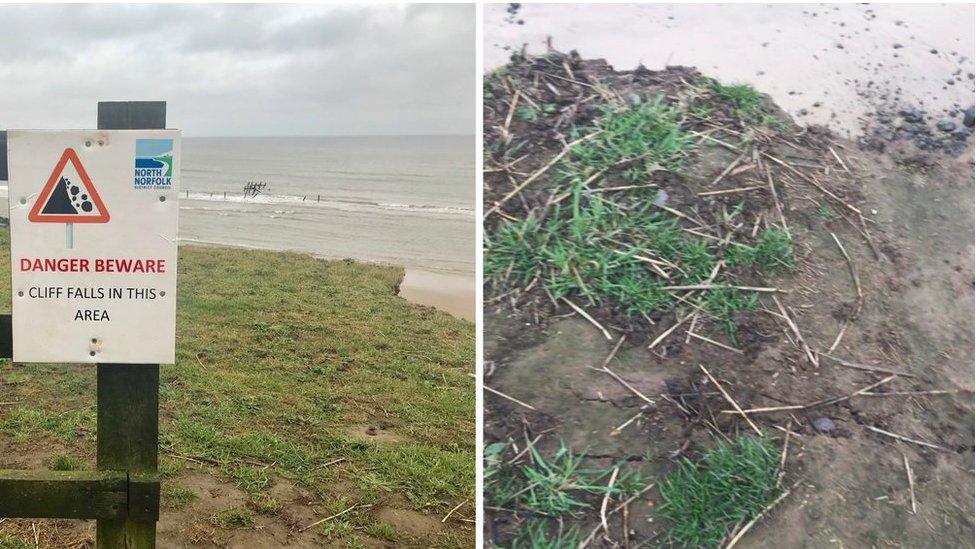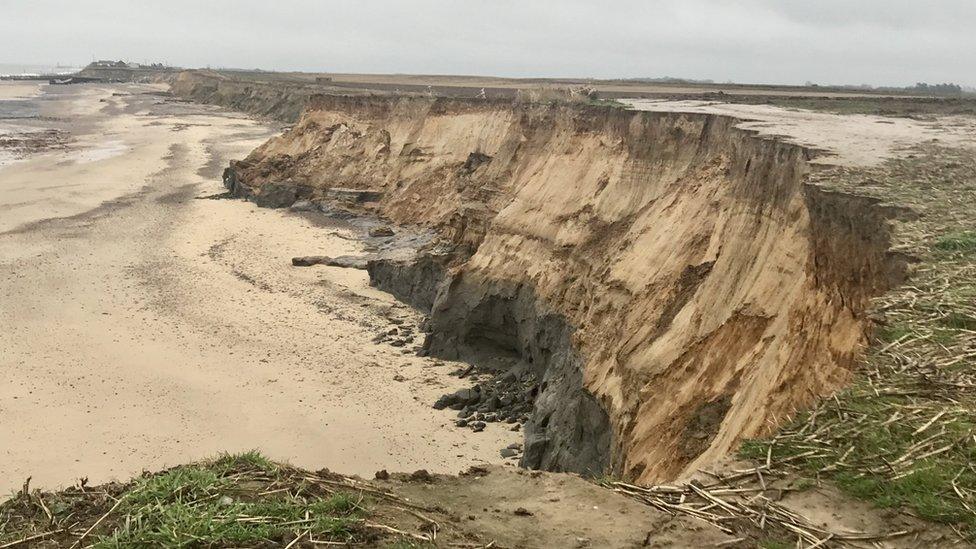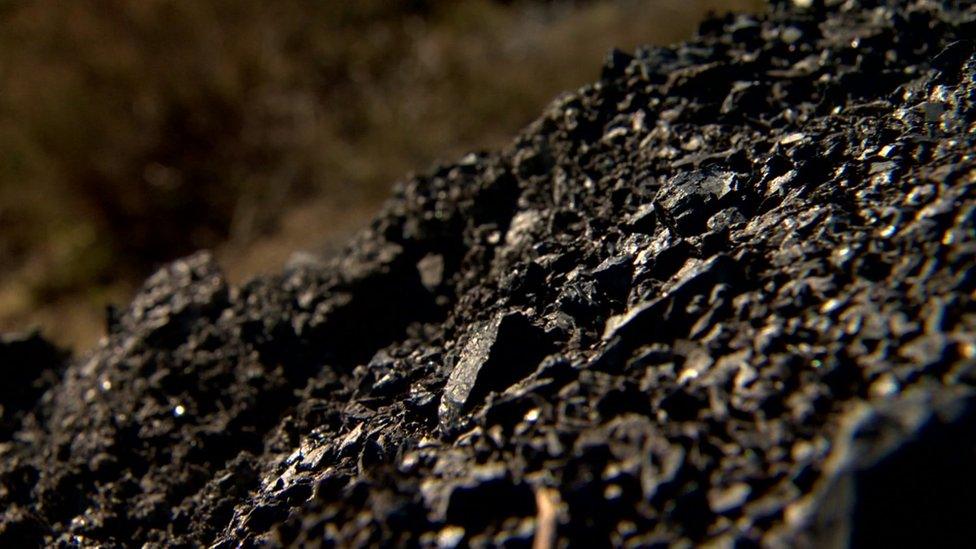My childhood will be lost to the sea
- Published
Darcy Bayless has lived in Happisburgh her entire life
Darcy Bayless knows that soon, she and her family will be evicted from their home by the North Sea.
Her red brick home in the coastal village of Happisburgh has a great view of the water.
The problem is, that view keeps getting closer.
"Sometimes I can feel the house shake because a piece of cliff has just fallen,' says the 15-year-old.
It's predicted the house will fall from its location on Beach Road to the beach below.
When her family bought it more than 18 years ago in North Norfolk, the survey said it was supposed to last about 150 years.
Surveyors now tell her family, it'll probably last another two years.

A sign warns walkers of the dangers of crumbling cliffs
Darcy points to a large visible crack in the soft clay rock near to the cliff edge.
"It's scary. To some people this may be the dream, live next to sea, round the corner to the beach."
Where there was once thatched cottages and caravans, there is now nothing but fresh air.
From anywhere you stand, it looks like the sea has been eating away at the cliffs.
This erosion is natural - but there are different views on how the speed of collapse is determined by weak coastal defences or climate change.
The campaign group Friends of the Earth , externalrecently described Happisburgh as "on the frontline of climate change".
Most scientists accept that humans have disrupted normal fluctuations in global warming by releasing heating gasses and therefore impacted directly on the ways climate is changing.
On the coast this can mean higher sea levels causing more powerful and damaging waves.

The cliffs have been naturally eroding but experts say climate change is accelerating it
Some experts say if there was a serious investment in sea defences, it would still change things massively.
Alastair Grant, Professor of Ecology at the University of East Anglia, says: "Happisburgh is suffering, and extreme events make people think climate change.
"It is an element and will be more so in the future, but I think the key issue is better investment in protecting the coast.
"The problem is the value of property that would be protected is not worth it in comparison to the costs of sea defences."
A report from the Committee on Climate Change , externalwarns that those living near the coast in England are at risk.
It suggests sea levels will rise by at least one metre before the end of the century.
About 100,000 properties are predicted to face coastal erosion with 1.2 million homes at risk of flooding.

Nicola and daughter Darcy inside the home that will soon be claimed by the sea
Darcy's mum Nicola Bayless says their neighbourhood has almost become a zoo.
"People come along and sometimes you feel like a freak show.
"They stare in at the windows, shocked that we actually live here and that it isn't just a holiday home."
For many residents age old problems are being made worse.
"We've seen the coast disappearing forever, it's nothing new here," sighs Malcolm Kerby.
As head of the Coastal Concern Action Group, he has been involved in lobbying government to help.
"I've been banging on about climate change for decades. It's accelerating the rate of erosion."
He refers to residents at risk as "climate change migrants".
The worry for people like him is that water levels will keep rising if global temperatures go up more than 3 degrees.
World leaders are meeting in Poland to commit to a solid plan following the landmark Paris agreement.
Now in his 70s, Malcolm says bluntly: "Look, at my age it doesn't matter.
"I'll be poking up the daisies long before any real big problems occur.
"But I desperately care about the future of my grandchildren and other children."

This sat-nav shows my location outside Darcy's home and how close it is to the sea
Some residents have rejected financial offers to demolish their homes and relocate.
They seem resigned when the issue of the changing weather patterns comes up.
Standing at her front door Nicola says: "Yeah it's worrying but you know, I don't think about it every day. I get on with life."
It's late into the afternoon and the sky is darkening quickly.
The beam from the nearby lighthouse flashes every few minutes bringing the edges of the cliff into focus.
Nicola stares out into the dark with a thoughtful look.
"You know, I'll be honest, at night, a chill goes through me when I think about how far away we are from the sea."
But Darcy says memories make them stay, particularly since her dad's death two years ago.
"I know where my mum grew up, I've seen it. But my children will never know where I lived."
Follow Newsbeat on Instagram, external, Facebook, external and Twitter, external.
Listen to Newsbeat live at 12:45 and 17:45 every weekday on BBC Radio 1 and 1Xtra - if you miss us you can listen back here.
- Published7 August 2018

- Published3 December 2018

- Published29 November 2018
